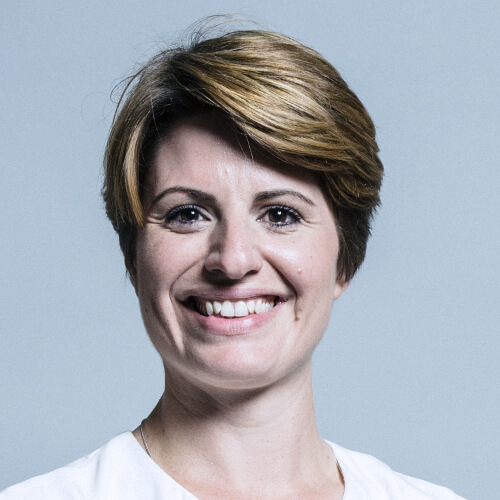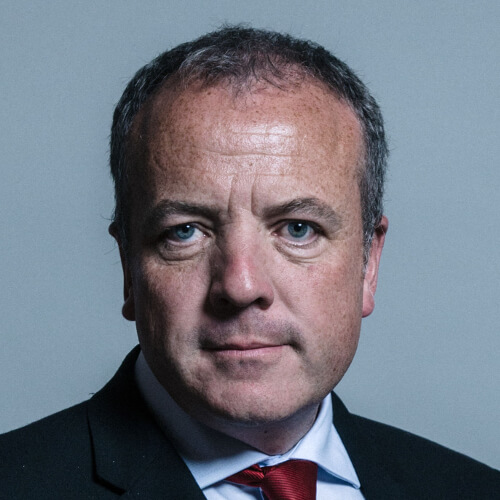What Educational Policy Reform is Coming Next?

Westminster has been pretty quiet on education recently, but that surely can’t last for long, says Mark Dixon – so what might we be hearing next?

- by Mark Dixon

Only now is the fallout from Gove’s GCSE reboot settling. Only now do we have space to draw breath.
We could surmise that Damian Hinds’ current truce on further reform is an admission of guilt – maybe even an apology – for hell wrought upon the teaching profession in those last five years.
Perhaps, one might also argue, the current détente is a by-product of Brexit – maybe all those Whitehall minions are too busy crafting new fisheries policies to enact radical change.
Or it could be that the current government lacks the energy for reform – their parliamentary majority providing merely enough clout to execute a vanity project or two: a smearing of grammar school expansion, some pronouncements regarding low-cost social mobility initiatives.
No matter the reason, educational reform has taken a backseat – for the time being at least, because there’s nothing more certain than ‘change’ in the education sector.
Undoubtedly, the seeds of tomorrow’s education reforms are being sown by politicians from across the political divide as we speak, but where are we heading? And what can we expect once Hinds’ truce collapses and the political spotlight falls on the education sector again?
On behalf of Teach Secondary, I’ve been speaking to three prominent politicians who might just be responsible for delivering those big education visions of tomorrow…
Emma Hardy
“We should assess oral literacy”
 Emma Hardy is a new political voice, winning her seat as part of the 2017 election intake. As an experienced primary school teacher and talented political voice she was a natural candidate to serve on the Education Select committee, and has used her position, thus far, to convince as many politicians as possible of the benefits of oral literacy.
Emma Hardy is a new political voice, winning her seat as part of the 2017 election intake. As an experienced primary school teacher and talented political voice she was a natural candidate to serve on the Education Select committee, and has used her position, thus far, to convince as many politicians as possible of the benefits of oral literacy.
“It’s a huge tool in terms of leveraging social mobility,” Emma tells me. “I think the previous government perceived it as being too soft or too progressive, but businesses and the CBI are telling us that they need more articulate and confident employees.”
Emma floats the idea of including a spoken viva as an assessed component across secondary qualifications.
“In real life, it’s what we have to do all the time. In a real job we have to communicate verbally. It could also show a much deeper understanding than just having to respond to a question in a written format. It could be done in a rigorous way.”
She is also a staunch advocate of wider reform in terms of school accountability systems.
Michelle, as such, is keen for businesses to play a more prominent role within schools. “We should try and foster that link even more all over the country,” she says, pointing to the way local businesses have been encouraged to take on mentoring roles and run school clubs within her own constituency. “We need,” she continues, “a school system that is channelling the next labour market and is aligned with the economy more than ever before.”
Mike Kane
“Ofsted is not fit for purpose”
 As Shadow Schools Minister, Mike Kane is well positioned to take up the reins of educational reform. He proposes a radical overhaul of school accountability systems. “Ofsted is not fit for purpose,” he insists. “We need a system that gives parents real time information. We need more qualitative reports and peer reviews.”
As Shadow Schools Minister, Mike Kane is well positioned to take up the reins of educational reform. He proposes a radical overhaul of school accountability systems. “Ofsted is not fit for purpose,” he insists. “We need a system that gives parents real time information. We need more qualitative reports and peer reviews.”
“Free schools,” he continues, “have also caused a colossal waste of money. Ninety-two have already failed. Under a Labour government, free schools and multi-academy trusts would come back under a democratically accountable system. They would have to conform to spatial plans. We’ve got huge regional disparities, and we need regional or sub regional measures to tackle them. Nobody would want to go back to a system where a local authority would look after ten or fifteen schools.” Mike suggests a bigger role for regional mayors in co-ordinating the remit of these new regional bodies, whilst simultaneously asserting a need for education to be devolved from Whitehall control.
“Gove practically wrote the new history curriculum,” he points out. “These things should be put out to consultation with proper professional and parental input. We have an ambition to set up a national and curriculum assessment authority that should have an element of subsidiarity around it.”
Maybe change should to be something teachers should embrace. Given the challenges facing us post Brexit, we ought to encourage as many new ideas as possible that will help young people become ‘work fit’ for our new economy.
The challenges posed by the UK’s lack of social mobility, coupled with the twin concerns of teacher shortages and the stress inducing demands of accountability systems, suggest a chronic need for fresh thinking.
Damian Hinds’ détente might be providing a much needed respite for the teaching profession… but let’s hope it doesn’t last too long.
Images by Chris McAndrew
Mark Dixon is a freelance writer and lead teacher at Durham Sixth Form Centre. Follow him on Twitter at @markdixonwriter.
“Our system is driving competitive behaviour and the way schools are offloading children they don’t want. It’s why there are so many SEN children in alternative provision. We need to be working collaboratively and thinking about what’s best for a child. If you had regional accountability, where every school was responsible for every child in that area, then you could look at driving behaviours of collaboration.”
Michelle Donelan
“Reform is needed for Pupil Premium funding”
.jpg) Michelle Donelan, like Emma Hardy, is a relatively new MP, and is likewise tipped to ascend the political ladder. Elected initially in 2015, she also works on the Education Select Committee and is a keen advocate of reforming the Pupil Premium.
Michelle Donelan, like Emma Hardy, is a relatively new MP, and is likewise tipped to ascend the political ladder. Elected initially in 2015, she also works on the Education Select Committee and is a keen advocate of reforming the Pupil Premium.
“At the moment it’s quite arbitrary,” she explains “The Pupil Premium is there to help people with financial deprivation – which is important, but it’s not the only form of adversity facing pupils.” The fund ought to tackle a range of adverse experiences, Michelle Donelan argues: family illness, bereavement or unemployment. And, more interestingly, she suggests that a bigger Premium spend, coupled with a reform of its current use, could have a huge impact on pupils across the education sector.
“Some teachers are spending it on propping up the main budget,” she argues, “whilst other schools are using it in a very targeted way. It creates a postcode lottery. A review could look at the age it finishes, the nature of involvement, how the money is used, as well as the categories of children it can benefit.”
“The skills shortage is also big problem in the UK,” she adds. ‘“I’ve called it a ticking time bomb. Businesses are crying out for engineering, manufacturing and technology skills and they can’t get them. The last thing we want is for these industries to move out of the area, or potentially out of the country, especially when we’ve got Brexit happening.”
Michelle, as such, is keen for businesses to play a more prominent role within schools. “We should try and foster that link even more all over the country,” she says, pointing to the way local businesses have been encouraged to take on mentoring roles and run school clubs within her own constituency. “We need,” she continues, “a school system that is channelling the next labour market and is aligned with the economy more than ever before.”
Mike Kane
“Ofsted is not fit for purpose”
 As Shadow Schools Minister, Mike Kane is well positioned to take up the reins of educational reform. He proposes a radical overhaul of school accountability systems. “Ofsted is not fit for purpose,” he insists. “We need a system that gives parents real time information. We need more qualitative reports and peer reviews.”
As Shadow Schools Minister, Mike Kane is well positioned to take up the reins of educational reform. He proposes a radical overhaul of school accountability systems. “Ofsted is not fit for purpose,” he insists. “We need a system that gives parents real time information. We need more qualitative reports and peer reviews.”
“Free schools,” he continues, “have also caused a colossal waste of money. Ninety-two have already failed. Under a Labour government, free schools and multi-academy trusts would come back under a democratically accountable system. They would have to conform to spatial plans. We’ve got huge regional disparities, and we need regional or sub regional measures to tackle them. Nobody would want to go back to a system where a local authority would look after ten or fifteen schools.” Mike suggests a bigger role for regional mayors in co-ordinating the remit of these new regional bodies, whilst simultaneously asserting a need for education to be devolved from Whitehall control.
“Gove practically wrote the new history curriculum,” he points out. “These things should be put out to consultation with proper professional and parental input. We have an ambition to set up a national and curriculum assessment authority that should have an element of subsidiarity around it.”
Maybe change should to be something teachers should embrace. Given the challenges facing us post Brexit, we ought to encourage as many new ideas as possible that will help young people become ‘work fit’ for our new economy.
The challenges posed by the UK’s lack of social mobility, coupled with the twin concerns of teacher shortages and the stress inducing demands of accountability systems, suggest a chronic need for fresh thinking.
Damian Hinds’ détente might be providing a much needed respite for the teaching profession… but let’s hope it doesn’t last too long.
Images by Chris McAndrew
Mark Dixon is a freelance writer and lead teacher at Durham Sixth Form Centre. Follow him on Twitter at @markdixonwriter.










